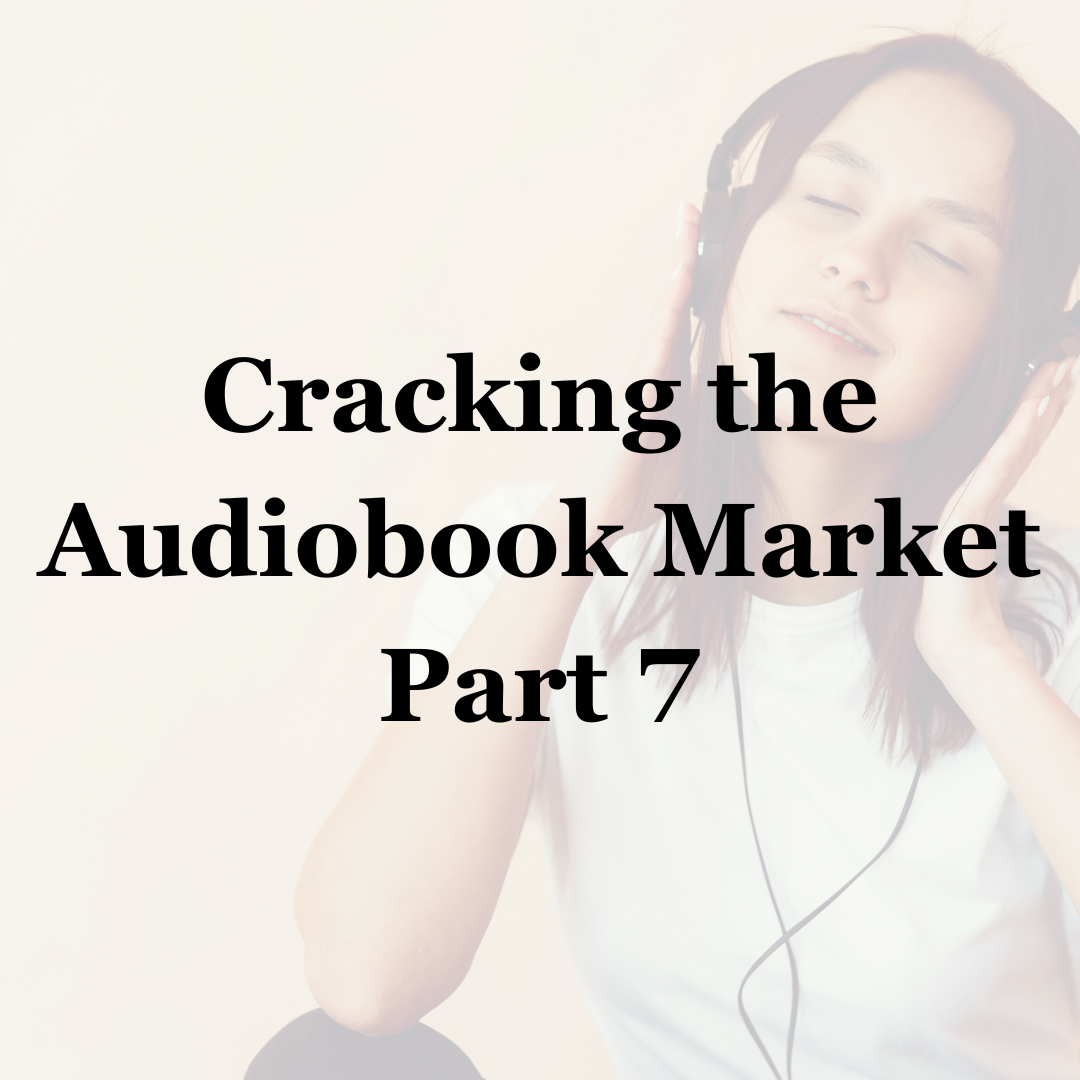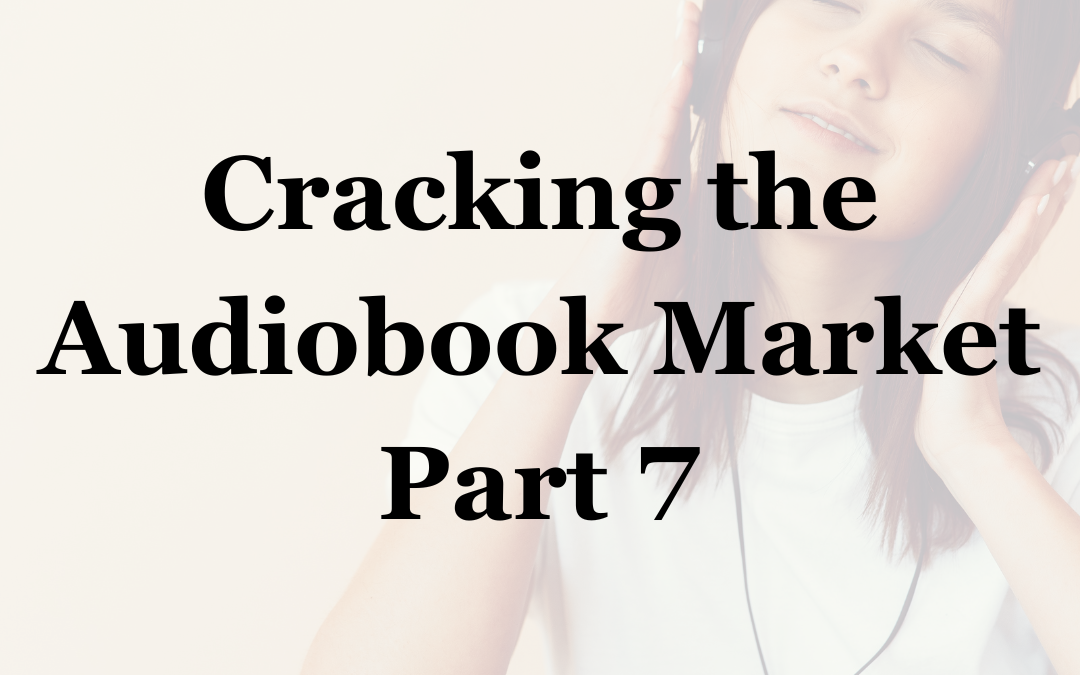Back to the Future: Trends to Watch For

We’ve made it to the last post on “Cracking the Audiobook Market.” You made your choice to get into the audiobook market (Part 1), learned the generic steps any text takes on the journey to audio (Part 2), looked closely at the pros and cons of the four paths an author can take on that journey (Part 3), learned what resources are available to help you in a hybrid model (Part 4), decided whether you’ll go narrow or wide in distribution (Part 5) and explored various marketing strategies (Part 6). In this post we’ll peer into the near future. What is happening in the audiobook market that could make your job easier/harder? What market disruptors should you be watching out for?
The rapid proliferation of audio services and business models is making accessing the market easier and cheaper. You need to keep your eye out for what’s happening in recording/audio in general. There’s new stuff coming through all the time. Here are a few major trends to watch:
The rapid move to the subscription model for audiobooks. It used to be if you wanted a novel in audiobook format you went to Audible, bought a book, and downloaded it. It cost you between $25 and $40—sometimes more for really long books. Many audio readers have been moving towards the subscription model where you pay a monthly fee and you get access to X many books or X number of credits or a particular list.
This model is exploding and I don’t know how it will impact an author’s revenue. The individual royalty on any one book will probably go down, but if audiobooks are cheaper, it’s likely more people will buy. It’s too early in the game for me to run the numbers, but I should have a better sense of how this will affect revenue next year.
The role of AI and content creation. Artificial Intelligence (AI) tools are market disruptors. In general, tools are tools and have no moral assignation–they are not “good” or “bad.” Authors have been using some of these tools, such as spell and grammar checkers, for decades to improve their writing and cut down on editing time.
In the past few years, AI tools that can help with manuscript prep and quality control in audiobooks have come onto the market. These are being used more and more, especially by the big book publishers who are putting all their books out in audio at the same time as they publish the print book. It saves time and money and puts some editors and QC folks out of work. These tools are also available to small and indie publishers. Check out Cracking the Audiobook Market Resource Guide for links to resources.
Copyright issues are emerging with the use of AI tools to write books, develop advertising copy, create cover art, narrate books (see below) and many other tasks. There are a number of lawsuits that are currently making their way through the courts that might clarify whether the product created by an AI tool can be copyrighted. Stay tuned on that one.
A huge fight is brewing around he use of AI to narrate audiobooks. In January 2023, Apple Books came up with what they call Apple digital narration and have made it available to fiction authors. They trained their AI (“machine learning”) by taking audio books that have been narrated by real people without paying for the use.
I’m sorry to say, that FindawayVoices (the company I’ve favored for audiobook services) was complicit in that scheme. They inserted a clause in the contract starting in 2019, which said by signing the standard agreement, you made your files available to Apple for the purpose of machine learning, but not for sales. You didn’t get any royalties for sharing your files. The narrators didn’t get any compensation and were “training” their potential replacements.
Recently the union SAG-AFTRA (Screen Actors Guild – American Federation of Television and Radio Artists) got involved. They negotiated with FindawayVoices and got that clause out of the standard contract. However, Apple still got four years of free machine training. SAG-AFTRA put out a long piece that described what was going on and outlined how they will bargain around this issue in the future. Specifically they’re going to focus on obtaining fair terms around any future use of this kind of material for digital training, including appropriate consent. “Writers Beware” put out an excellent article outlining the controversy.
At this point, AI narrators are good, but not good enough for lengthy novels. Audiobook consumers can easily tell if the narrator is human or a bot and they prefer humans—for now. I can guarantee that AI narrators will improve to a point it will be difficult to tell the difference. But I don’t know when that will happen. Here’s a link to the Apple Digital books so you can check it out for yourself. They will take your fictional eBook and translate it into an audiobook, but it is clearly labeled AI narrated.
Project Gutenberg, which puts out free public domain ebooks, now has over 5,000 audiobooks available from public domain material. They are narrated by AI developed by Microsoft. A good article is available on that project from Freethink*.
Watch this debate closely. At this point, Audible will not sell an AI narrated audiobook. The unions are already involved. It’s likely that court decisions, regulators, and legislators will weigh in. Once the dust settles, AI narration could be a real game changer for anybody who wants to put out audiobooks. It also has the potential to put tens of thousands of people out of work. Stay tuned!
I hope you found this series interesting and useful. Please feel free to give me feedback or ask questions in the comments.
Faith L. Justice has nine books out in audio. She learned these lessons the hard way so you don’t have to. This series of posts is an expanded text version of a presentation she made to the New York City Chapter of the Historical Novel Society. The original video is here.
